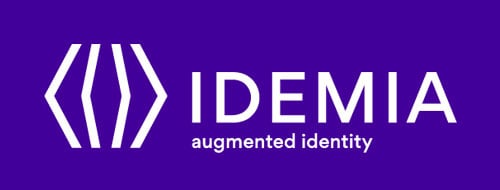The golden record: a single source of truth in data management


Governments hold vast amounts of data about citizens and economies, providing opportunities to better target public funds, strengthen policymaking, and improve services’ efficiency and accessibility.
But in most countries, fragmentation hinders that ambition. Datasets are too often held in many different formats, systems, locations and organisations, and maintained to variable standards. So attempts to connect and integrate them – providing a fuller picture of individuals and issues, and allowing officials to build services around users’ needs – are hampered by mismatching and contradictory data.
The answers lie in master data management: the process of consolidating these networks of disparate datasets into a single view, built around accurate, compatible information in key fields such as name and location. Creating a ‘golden record’ for crucial datapoints involves reforming data collection, maintenance and governance practices; introducing and managing systems to reconcile conflicting information, determining which is accurate; and building new connections to update databases across government when a change is verified.
At this Global Government Forum webinar, civil service leaders and industry experts discussed how governments can create golden records – providing firm, shared foundations for work to build a clear, multi-faceted picture of public policy challenges and build services around citizens’ needs.
Panel
Webinar chair: Siobhan Benita, former UK senior civil servant

Siobhan Benita was a senior civil servant with over 15 years’ Whitehall experience. She worked in many of the major delivery departments, including Transport, Environment, Health and Local Government. She also had senior roles at the heart of Government in the Cabinet Office and HM Treasury, including supporting the then Cabinet Secretary, Lord O’Donnell to lead work on Civil Service reform and strategy. Siobhan left the Civil Service to run as an independent candidate in the Mayor of London election. She subsequently joined her alma mater, Warwick University as Chief Strategy Officer of Warwick in London and Co-Director of the Warwick Policy Lab.
Gintautas Mežetis, Director, Committee on the Development of the Information Society (IVPK), Lithuania

Gintautas Mežetis is the Director of Information Society Development Committee of Lithuania. Since its establishment on 1 July 2001, the Information Society Development Committee (ISDC) has been participating in the process of shaping state policy in the development of information and communications technologies in Lithuania. The mission of the Committee is to participate in information society development, information resources and documents re-use policy making and implementation fields, which are delegated to the minister of the Economy and Innovation of the Republic of Lithuania. Prior joining public sector 2 years ago Mr. Mežetis has accumulated a broad international experience, including the Middle East, Asia, USA and Western Europe in technology, IT, communications and energy sectors.
Tomas Sanchez Lopez, Chief Data Architect, Office for National Statistics, United Kingdom

Tomas Sanchez Lopez is the Chief Data Architect at the Office for National Statistics (ONS), where he started in mid-2017 to lead the development of the office’s data strategy. Tomas is responsible for delivering a number of data products that form the basis of ONS data management, including reference and master data, metadata and cataloguing, data standardisations and data linking. Prior to the ONS, Tomas worked at Airbus for several years, heading research on data analysis for the Corporate Technology Office. Tomas’ background is in Computer Science, and so he has obtained an Ms.C in the Polytechnic University of Valencia, Spain, a Ph.D in KAIST, South Korea, and a post-doc in Cambridge University, UK in this discipline.
Rachel Ran, Data Policy Manager, Ministry of Digital Affairs, Israel

Rachel Ran is the data policy lead within the Government ICT Authority. She Joined the ICT Authority 4 years ago, after completing the Civil Service Cadet Program specializing in public policy. As part of the ICT authority’s strategy and planning division, Rachel is in charge of cross-governmental data projects, including:
Establishing data governance and standardization by facilitating a common government data model; designing the legal and technological framework for the government API ecosystem; implementing the ‘ask once only’ principle through interoperability in digital service design; promoting the government’s open data policy and the ‘open by default’ principle; and founded and leading “Datalab” – experimenting with data science tools to improve government performance.
Rachel holds a law degree specializing in law and technology, as well as a Master’s in Law and Economics From Erasmus University Rotterdam, writing her thesis on antitrust and data markets. She also holds an M.A in public policy from the Hebrew University of Jerusalem.
Ben Welby, Policy Analyst – Digital Government and Open Data, Open and Innovative Government Division, Directorate for Public Governance, OECD

Benjamin Welby’s work for the OECD has covered the impact of Digital Government on citizen well-being, service design and delivery, digital identity, digital talent and skills for the public sector and the flagship report The path to being a data-driven public sector. He has participated in Digital Government Reviews and capacity building work in Europe, Latin American and North Africa. Prior to joining the OECD, Benjamin worked for the United Kingdom’s Government Digital Service where he was part of the team that launched GOV.UK. He introduced a digital first approach to supporting users at the UK’s tax body, HMRC, and was the Lead Product Manager responsible for the Government as a Platform programme. He also sat on the Spend Controls Approval Board and acted as a Lead Assessor for Service Standard Assessments.
Benjamin holds a Masters in Public Administration from the Institute for Local Government at the University of Birmingham; a Masters in Post-War Recovery Studies from the Post-war Reconstruction and Development Unit at the University of York; and a BA in History, also from the University of York.
Gregory Kuhlmey, Digital Identity Business Development Manager, IDEMIA

Gregory is Digital Identity Business Development Manager within IDEMIA’s Public Security and Identity business, based in Paris, France. In his current role, Gregory is responsible for providing guidance to governments and companies along their digital transformation journeys. He helps to ensure that all digital transformations are built on trusted identities that can be used anywhere, anytime.
Gregory has spent most of his professional career working with digital trust software, serving governments and regulated sectors.
Examples of Gregory’s previous projects include:
• Launching secureidentity.co.uk, a digital identity service for UK citizens and residents. This service provides a secure and easy-to-use platform for individuals to prove and protect their identities online. Individuals can quickly and safely access government services, this includes, filing tax returns, verifying driver’s license information and claiming benefits.
• Setting up IDEMIA’s data traceability service for online gaming operators. This service allows government authorities from nine countries to oversee licensed sports betting and gambling web sites. This project aims at protecting players from fraud and addiction, and permits governments to levy the licensing tax.
Before working for IDEMIA, Gregory worked as a manager for Accenture where he was a part of large IT projects serving the health, travel, energy, entertainment and financial sectors. Gregory is a native French speaker, who also speaks English and German fluently. He has worked in numerous European countries.
Gregory holds a degree in Engineering from Ecole Nationale Supérieure des Télécommunications de Paris, France, as well as a Master of Business Administration from INSEAD, France.













